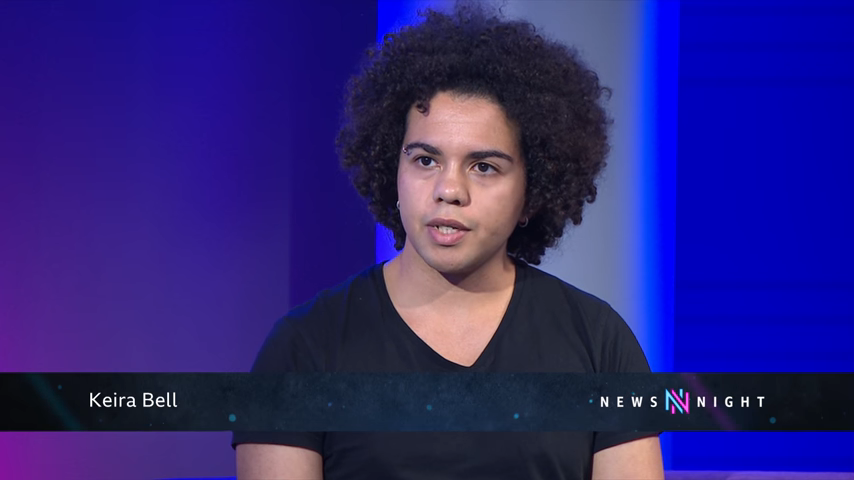Table of Contents
Laura Lopez
Laura Lopez holds a graduate degree in psychology and is the mother of two young children.
Anyone who wants to understand the harm that our government’s Conversion Practices Bill could cause, needs to know the story of Keira Bell. The Bill has been marketed as a straightforward prohibition of a dangerous, ineffective, and bigoted practice. In fact, the Bill goes much further than that and could have far-reaching implications that should seriously concern any parent.

Keira’s story is worth reading in full. Very briefly, Keira was a troubled young woman who came to believe that she was ‘really’ a boy. At age 15 she was referred to the Gender Identity Development Service at the Tavistock clinic in London. The GIDS clinic practiced an ‘affirmative care’ model, which is based on the uncritical affirmation of a child’s stated gender. She was prescribed puberty blockers at age 16, and like most children who are prescribed puberty blockers, she went on to take cross-sex hormones (in her case, testosterone). This was followed by a double mastectomy at age 20.
Puberty blockers disrupt the body’s natural hormonal functioning and were previously used to chemically castrate sex offenders. There is limited evidence of their safety and efficacy as a treatment for gender dysphoria (i.e. discomfort with your biological sex). The potential consequences of the medical transition to the opposite gender can be severe, and can include lifelong sterility, sexual dysfunction, and surgical infections.
Multiple studies have found longer-term associations of medical transition with skeletal impairments, cardiovascular complications, and premature death. For many people, medical transition is worth the costs and risks. For Keira, it was not. She came to realise, in her words, that “gender dysphoria was a symptom of my overall misery, not its cause”. Keira detransitioned back to her biological sex, and deeply regretted her treatment due to its long-lasting effects. She took part in a judicial-review case against the Tavistock clinic, and won a unanimous verdict.
The panel of British judges concluded that puberty blockers are “properly described as experimental treatment” and “a pathway to much greater medical interventions”. They also concluded that “it is highly unlikely that a child aged 13 or under would be competent to give consent to the administration of puberty blockers” and that much greater protections were also needed for older children. Other countries have drawn similar conclusions: for example, Sweden’s Karolinska Hospital recently ended the use of puberty blockers and cross-sex hormones with minors.
The Conversion Practices Bill risks mandating the ‘affirmative care’ approach to gender dysphoria that was practised by the Tavistock clinic and criminalising more cautious models of care. Notably, Justice Minister Faafoi has refused to rule out imprisoning parents for denying their twelve-year-old children access to puberty blockers. Similarly, gender activist Shaneel Lal wrote approvingly in The Spinoff:
What may be criminalised is if a parent forcefully stopped their child from taking puberty blockers because of their child’s gender identity or gender expression with the intent of changing or suppressing their child’s gender identity or gender expression. Why shouldn’t this be criminalised? If a medical professional and a young person decide that puberty blockers are best for the child, a transphobic parent should not be allowed to stop that.
Indeed – why shouldn’t the government experiment with giving potentially harmful drugs to children, and imprison their parents if they object?
Why This Affects You
In the aftermath of the Keira Bell controversy, evidence has emerged that many Tavistock clinicians were deeply uncomfortable with the clinic’s affirmative care model, but felt pressured into either complying with the approach or leaving the clinic. As the Spinoff article quoted above illustrates, anyone with concerns about the affirmative care model risks being publicly shamed as ‘transphobic’. People have lost their jobs for challenging transgender ideology, and research into the experiences of detransitioners has been actively suppressed.
Meanwhile, activist ‘educational’ organisations like AMAZE are producing cartoons for distribution in schools that seek to convince children that if they feel uncomfortable with the changes to their body during puberty, they should take puberty blockers.
Many activist organisations and media outlets fail to mention the potential costs of puberty blockers and medical transition. The number of children presenting with gender dysphoria has dramatically increased in recent years, for reasons which are still poorly understood but may potentially include the extensive promotion of gender transition in media and social media coverage. Detransitioning is also increasingly common. New Zealand has taken a particularly liberal approach to prescribing puberty blockers. As a consequence, the number of parents who could be affected by the proposed Bill is not insignificant. Bluntly put, your child could be the next Keira Bell.
Conversion Practices
AreIneffective and Potentially Harmful
The preamble to the Bill is correct to state that the balance of evidence shows that conversion practices for sexual orientation are ineffective and can be harmful. There is also an horrific history of abusive conversion practices, which are to be decried (and are, of course, already illegal).
Contrary to the Bill’s preamble, there has been very little research into conversion therapy for gender identity (as opposed to sexual orientation), especially in children. A recent study by Jack Turban and his colleagues has been widely reported as providing evidence that conversion therapy for gender identity is widespread and harmful, but this study is severely flawed. Nonetheless, most clinicians would agree that coercive attempts to change gender identity are likely to be harmful and counterproductive.
There Are Safer Models of Care for Children with Gender Dysphoria
Gender dysphoric children are, of course, a vulnerable group who need non-judgemental support and care. However, gender activists present a false binary between ‘affirmative care’ and ‘conversion therapy’. In fact, there is a third approach to supporting children with gender dysphoria called ‘watchful waiting’. Watchful waiting involves providing neutral, supportive psychotherapy, and delaying hormone treatment or other invasive procedures until the child is older. The rationale for watchful waiting is that most children with gender dysphoria desist naturally. For the small number of individuals with ongoing gender dysphoria in adulthood, medical transition can indeed be helpful.
Watchful waiting is the traditionally accepted approach to treating gender dysphoria in children, and remains commonly practiced (e.g. the ‘watchful waiting’ approach is recommended by the Finnish Health Authority’s evidence-based guidelines).
In addition to delaying invasive medical interventions, ‘watchful waiting’ approaches often recommend delaying social transition until the child is older (due to concerns that social transition may interfere with the child naturally regaining their comfort with their biological sex). It is thus possible that they will be prohibited by the Bill, on the grounds that they entail ‘suppressing’ the child’s gender identity or expression. This is deeply concerning.
What Can You Do?
Submissions on the Bill close on September 8th and can be made via this website. Some useful advice on writing a submission can be found here.
It is understandable and legitimate to oppose the Bill as a whole (which was the course of action initially recommended by the Ministry of Health). Alternatively, there are a number of changes that the government could make to limit the potential damage that could be caused by the Bill while still achieving its stated intent of protecting people from harmful conversion practices. These could include:
- Removing gender identity from the Bill, and focusing only on sexual orientation.
- Explicitly stating that ‘watchful waiting’ treatment approaches are not conversion practices and are not prohibited by the Bill.
- Exempting parents from the Bill.
- Explicitly exempting the provision of advice, information, and guidance from the bill.
- More precisely describing conversion practices (for example, by specifying that they must be “coercive” for prosecution to occur).
- Retaining the current provision that Attorney-General approval is required for prosecution under the Bill (some gender activists are calling for this safeguard to be removed).
The ongoing Inquiry into Historical Abuse in State Care shows what can happen when we hand over control of our children’s lives to our government. You deserve a say in what happens to your children. Make your voice heard.
Please share so others can discover The BFD.









